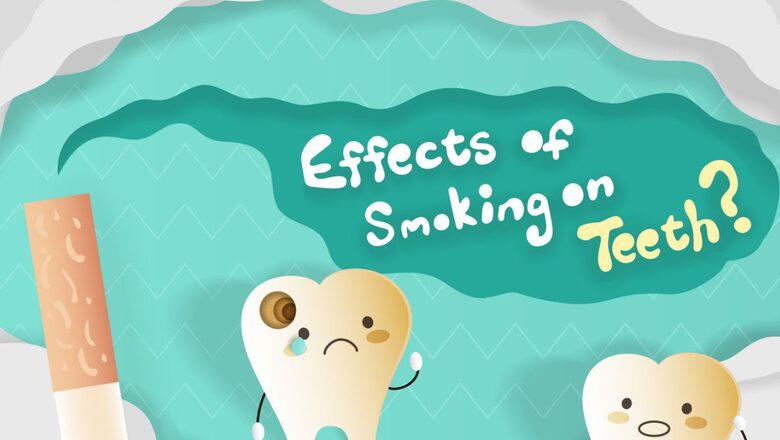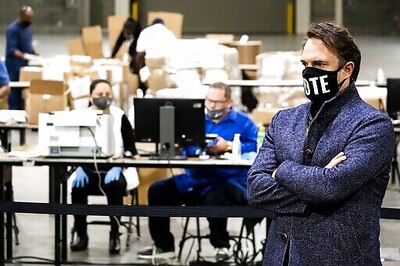
views
Tobacco, whether consumed through smoking or chewing, can be extremely harmful and potentially fatal. Tobacco products contain various toxic substances like acetone, tar, nicotine, and carbon monoxide, which can cause severe damage to the lungs and impact other organs. Smoking can result in life-threatening complications and have long-lasting, irreversible effects on the body. It also raises the risk of developing health conditions like glaucoma, cancer, and immune system problems within a relatively short period. Additionally, some immediate effects on the body become apparent upon tobacco use.
“There’s no safe way to smoke – cigars, pipe, vaping or hookah cannot help you avoid the health risks. Cigarettes contain about 600 ingredients and when they burn, they generate more than 7,000 chemicals of which around 69 are carcinogenic. Hence, quitting smoking is the best solution to not just reversing many of the effects but also helping your body systems heal,” says Dr Jatin Kakrani, co-founder, Dezy (Smiles.Ai).
Since smoking has a direct effect on the dental health of a person, Dr Kakrani shares what it can do to your smile:
Tooth Discoloration
Smoking tobacco stains your teeth over time. Nicotine and tar, present in tobacco, can cause yellow or brownish discoloration of the teeth. This staining can be stubborn and difficult to remove through regular brushing.
Bad Breath
Smoking contributes to chronic bad breath, known as halitosis. The chemicals in tobacco, along with the buildup of plaque and bacteria in the mouth, can lead to persistent foul breath.
Gum Disease
Tobacco use increases the risk of developing gum disease (periodontal disease). Smoking weakens the immune system and reduces blood flow to the gums, making them more susceptible to infection and inflammation. This can cause symptoms such as swollen, bleeding gums, receding gum line, and eventual tooth loss.
Delayed Healing
Smoking hampers the body’s ability to heal, including oral tissues. After dental procedures like tooth extraction or oral surgery, smokers may experience delayed healing, increased risk of infection, and complications.
Oral Cancer
Tobacco is a major risk factor for oral cancer. Smoking increases the chances of developing cancers of the mouth, throat, tongue, and lips. These cancers can be life-threatening and may require extensive treatment, such as surgery, radiation therapy, and chemotherapy.
Reduced Success of Dental Treatments
Smokers may notice that their treatments are taking longer or the success rate of their dental treatments is lower; for instance, dental implants, root canal therapy, and gum disease treatments. Smoking compromises the body’s ability to heal and increases the risk of complications.
Increased Tartar Buildup
Smoking promotes the accumulation of tartar (hardened plaque) on teeth. Tartar is more challenging to remove than regular plaque and can contribute to tooth decay and gum disease.
Tooth Loss
Due to the combined effects of gum disease, poor healing, and increased tooth decay, smokers are at a higher risk of tooth loss compared to non-smokers. This can lead to functional and aesthetic problems, resulting in impacted overall oral health.
Diminished Sense of Taste and Smell
Smoking can diminish the ability to taste and smell properly, adversely affecting how we enjoy food and beverages.
Dry Mouth
Smoking can cause dry mouth (xerostomia) by reducing saliva production. Saliva helps to neutralize acids, wash away food particles, and protect against tooth decay. Dry mouth increases the risk of oral health problems.




















Comments
0 comment